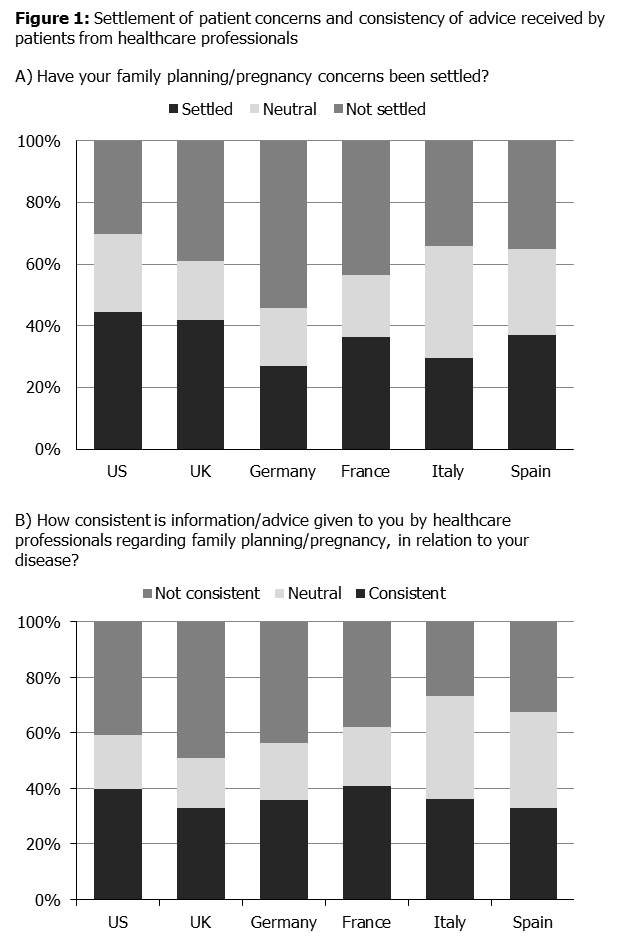Session Information
Title: Health Services Research, Quality Measures and Quality of Care - Innovations in Health Care Delivery
Session Type: Abstract Submissions (ACR)
Background/Purpose:
Autoimmune and inflammatory diseases often affect women of reproductive age and can impact pregnancy outcomes. This patient (pt) group has important concerns about family planning and pregnancy (FPP), however little research has been undertaken into whether such concerns are adequately addressed in current clinical practice. The aim was to identify FPP issues for female pts of child-bearing age and to assess whether current clinical practice routinely provides adequate support to alleviate these concerns.
Methods:
Two online surveys were undertaken to identify FPP issues for both pts and physicians. The surveys were designed to gauge whether there is a gap in the communication by examining the frequency of dialogue on these topics between physicians and pts, alongside assessment of pt satisfaction regarding these discussions. Physician survey was designed to elicit both spontaneous (open-ended questions) and prompted (closed questions) responses: rheumatologists were surveyed in Germany (N=50), France (N=50), Italy (N=50) and the USA (N=100) while gastroenterologists were surveyed in the USA (N=100). Pt survey was targeted at premenopausal women (aged 20-45 years of age; N=969) and delivered in USA, UK, Germany, France, Italy and Spain.
Results: Conclusion:

Disclosure:
M. E. B. Clowse,
UCB Pharma,
5;
E. Chakravarty,
UCB Pharma,
5;
D. S. Pushparajah,
UCB Pharma,
3;
S. Mertens,
UCB Pharma,
3;
C. Gordon,
None.
« Back to 2013 ACR/ARHP Annual Meeting
ACR Meeting Abstracts - https://acrabstracts.org/abstract/patient-and-physician-perspectives-on-family-planning-and-pregnancy-issues-in-systemic-inflammatory-diseases-mind-the-gap/
